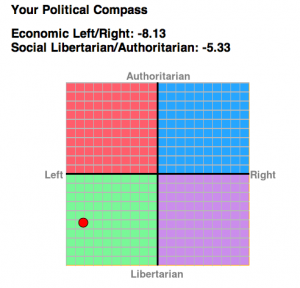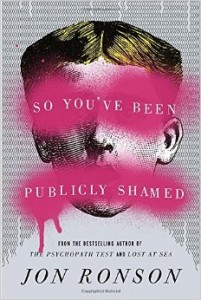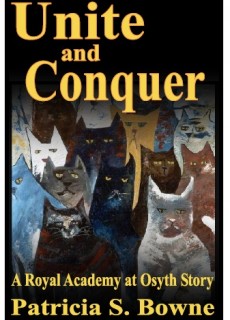Brute Reason has an interesting post this morning about how people use trigger warnings. However, it becomes less convincing when it discusses the academic setting. Here’s where I started to shake my head:
When people condescendingly claim that college students who ask for trigger warnings are trying to “avoid challenging material,” they are–perhaps intentionally–conflating two meanings of the word “challenging.” Triggering material is emotionally challenging. …
Do we really go to college to encounter this type of “challenge”? No, college coursework is intellectually challenging. The challenge is understanding the nuances of complicated arguments or literary devices. The challenge is connecting ideas together in a way that flows and makes sense, finding patterns in the texts, defending your opinions using evidence from the book. The challenge is being willing to entertain an argument that you personally disagree with, to examine it from all sides.
Read more: http://freethoughtblogs.com/brutereason/2015/05/19/a-list-of-ways-i-have-used-trigger-warnings/#ixzz3agJJYOp1
This dichotomy doesn’t work for me, and here’s why.
I teach Pathophysiology. I teach about liver cirrhosis to students whose favorite uncle died of it, and about heart failure to students whose grandma is in hospital with it. More than once, I’ve taught about cancer to students who were currently battling it. I taught about pancreatic cancer the week my mother died of it, and about Parkinson’s right after my father died of that. I don’t get to avoid these subjects if they’re triggering, and neither do my students; they cannot learn to predict what emergencies might arise during cancer treatment without discussing cancer. In some cases I can make adjustments, like the time I rephrased an assessment to be about liver cancer instead of cirrhosis for a particular student or learned not to use the phrase ‘cell suicide’ when we discuss apoptosis, but there’s only so much of that I can do.
The triggering content is integral to pathophysiology, not just because a nurse or doctor needs to know about diseases but because one of the skills of the profession is that of thinking analytically about emotionally triggering topics. My students understand this. We work towards it together. I can feel the relief in the classroom when we move from the image of a patient to creating a flow chart of his condition, and how after making the flow chart we all look at the patient differently. The disease hasn’t changed, but now we can explain it and anticipate what will happen and how to minimize its awfulness.
It’s true, my students are a special case. They’re studying to be heroes, to look unflinchingly at things that horrify other people, to get blood on their hands and save lives. What I teach them is essential knowledge for their chosen careers; a student who doesn’t attend the cardiac unit, or is too triggered by it to learn the material, may not pass the NCLEX or succeed in medical school. So how can I expect to generalize from them to other college students, or policies in general? Well, the other people who write about trigger warnings all seem happy to generalize from humanities courses to the rest of us. And don’t we often have the same students? Nursing majors and pre-meds take humanities courses, where some of them probably give their profs grief about trigger warnings.
So here are my generalizations.
I think students come to college to learn both information and ways of thinking about it that will give them power. The students leaving my class have power over disease that they did not have when they entered the class – the power to look at it analytically, as a series of cause-effect relationships in which they can intervene. But they also came into the class with power. They came in with the determination to intervene, and accepted that to do so they must face these topics straight-on.
That determination, I think, is key to their success. It’s why I don’t use the term ‘trigger warning’ in Patho, though I make it clear what content will be discussed every day. To identify course topics as ‘trigger warnings,’ I think, could send the wrong message and undercut the determination I want to encourage. Do you really want to put yourself through the class on that disease? it would ask, when the message I want to send is, How can I help you develop power over this topic?
For me, the trigger warning issue is one of many that can be minimized by concentrating on OUTCOMES, OUTCOMES, OUTCOMES. Here are my rules, then, for a class without controversy about triggers:
- Know what your course is really about, and let students know it coming in. Identify the topics you’re teaching about in the syllabus, and teach about those topics.
- Be explicit, constantly, about how what the students are learning will be used in their future courses and careers. If you can’t do this for a topic, leave it out of the course.
- Identify the course objectives, based on what students will have to do with the material after they leave your course, and teach those. If you can’t explain how an objective will be related to the students’ future courses or careers, leave it out of the course.
- Once you’ve whittled your course down to content and objectives that students really need, lay it out for them in a clear calendar and syllabus. When they take your course, they are going to learn this stuff and how to do that with it. If they don’t want to achieve those goals, they should be taking a different course.
- Now you’ve all agreed on what you’re doing, make students your partners in achieving the course objectives. If discussing cirrhosis triggers a student, how does she suggest she can demonstrate her understanding of how liver failure causes its signs and symptoms? The objectives aren’t negotiable, but how she demonstrates them might be.
- Recognize how much wiggle room there is in the course. A student can pass my class without passing every assessment. If she has to stay home on bowel obstruction day, it’s her choice. My job is to make sure she knows what day that is, and how serious a hit missing it will deal to her success in demonstrating the course outcomes.
- If a student is unavoidably triggered by enough course topics that she cannot demonstrate the outcomes, it’s time to involve her advisor – it’s not just your issue, since you’ve defined a set of course outcomes that are necessary for the student’s success in her program.
That’s it. OUTCOMES, OUTCOMES, OUTCOMES. This is a good time to start thinking about them … or maybe two weeks from now, when we’ve recovered a little from grading finals. I know I’ll be fine-tuning mine, dreaming about that stress-free semester that’s always just over the horizon.
 (We sang that song in chorus last year and let me tell you, it’s not as easy as you’d think)
(We sang that song in chorus last year and let me tell you, it’s not as easy as you’d think)















